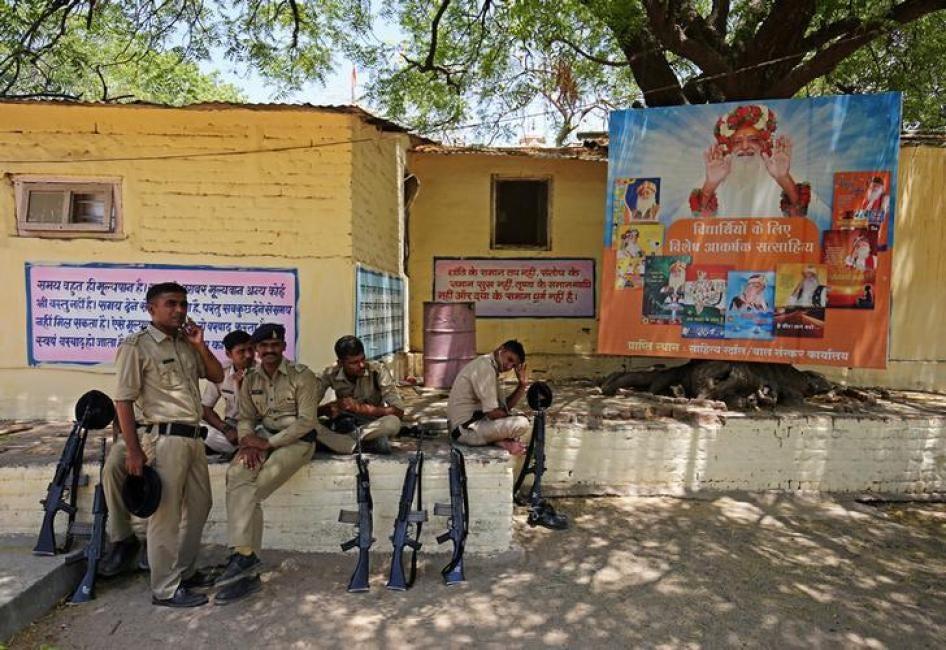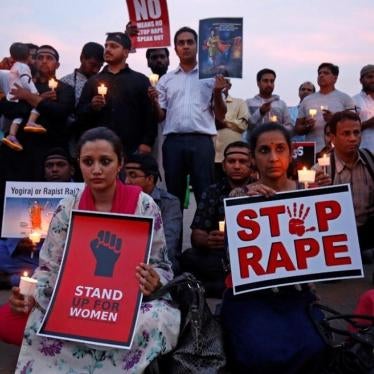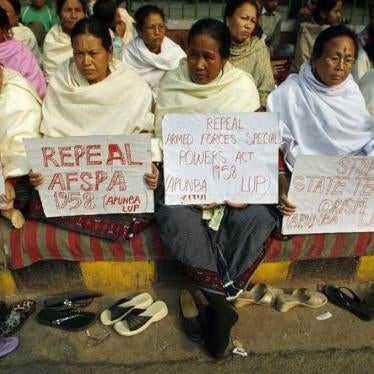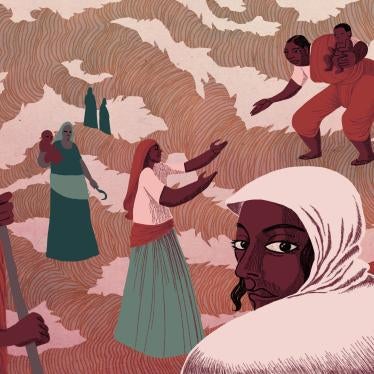“During night, I get no sleep as I am in constant fear of death by the accused’s firing squad…I want to live at least till I complete my testimony,” stated Rahul Sachan, a former personal assistant to Asumal Harpalani (known as Asaram), in an affidavit filed with the Supreme Court in August 2015.
Sachan, a witness in the two rape trials of Asaram, and a third against Asaram’s son Narayan Sai went missing three months later and his fate is unknown. Earlier that year, he was stabbed outside a court in Jodhpur city.
On April 25, Asaram, a multi-millionaire who reportedly has 20 million followers, was sentenced to life in prison after being found guilty of raping a 16-year-old girl in his ashram in Jodhpur. But in the course of the trial, which began in 2013, three witnesses were killed, at least five others were attacked, one went missing, and even senior police officers leading the investigation said they were threatened. The trials of Asaram and his son in two other cases of alleged rape of two sisters are pending.
Asaram, until recently, counted among his following top political leaders of both the ruling and opposition parties, heightening challenges for victims of his alleged crimes to obtain justice.
Asaram may have exceptionally powerful connections, but as Human Rights Watch documented in the November 2017 report “Everyone Blame Me” threats, intimidation, and harassment from the accused are routine in cases of sexual violence.
Girls and women who report such crimes are even more at risk when they belong to socially or economically marginalised communities. If the perpetrators are influential, police too often pressure the complainants to “settle” or “compromise” in such cases. Such harassment and lack of protection, along with victim blaming and social stigma, means many victims fail to report rape to authorities at all.
For instance, police in UP’s Unnao instead of prosecuting a ruling BJP lawmaker accused in the alleged gang-rape of a 17-year-old girl in June 2017 arrested the victim’s father, who died in police custody in April 2018. The Allahabad High Court slammed the state police for failing to file her complaint and arresting the accused, noting that the report by a special investigation team ordered by the state government found that “medical officers and police officers — all were hands in glove with the accused to save them.”
Similarly, in Kathua in Jammu and Kashmir two police officers have been charged with trying to cover-up evidence in the kidnapping, gang-rape, and murder of an 8-year-old Muslim girl in January 2017.
In August 2017, responding to a plea from families of victims and witnesses in Asaram’s case to seek protection, the Supreme Court issued a notice to all state governments to frame a national witness protection programme.
This was not the first time the Supreme Court had observed that India needed a witness protection scheme. In 2006, the Law Commission had noted the need to protect witnesses and victims as well as the identity of witnesses in case of serious offenses, not just confined to terrorism or sexual offenses. “Witnesses turning hostile on account of threats having increased in the cases of such crimes, protection appears to have become necessary,” it said.
India has a conviction rate of 26 percent for rape, as compared to 47 percent for other cognisable crimes under the Indian Penal Code (IPC), according to 2016 government data. One reason, activists and lawyers say, is witnesses, far too often, change their testimony in court because of threats.
Both the IPC and the Protection of Children against Sexual Offences Act (POCSO) have provisions to protect victims and witnesses in court such as conducting in-camera trials, without the presence of the media or public. In case of children, POCSO also provides for special courts that should ensure that the identity of the child is not disclosed during the course of the investigation or trial.
However, India does not have a national witness or victim protection law, making witnesses and victims vulnerable outside the courtroom.
In 2015, Delhi became the only state to adopt a Witness Protection Scheme. The Delhi State Legal Services Authority (DSLSA) passes protection orders in each case after evaluating the threat. The police commissioner, who heads the Delhi police force, is responsible for the overall implementation of the witness protection orders. Protection measures can include armed protection, regular patrolling around witnesses’ house, installing closed-circuit television cameras, and relocation.
Even in the absence of a witness protection scheme, courts have ordered protection for witnesses and victims in sensitive cases or those involving high vulnerability. However, as the pattern of threats, attacks, killings, and abduction in the Asaram case shows, security is often inadequate.
Mahendra Chawla, a former personal assistant to Asaram’s son Narayan Sai, is another key witness in all the cases against father and son. In May 2015, two men on a motorbike shot him in his village in Haryana, leaving him partially disabled. Chawla was attacked a day after the police constable assigned to him was removed for dereliction of duty, leaving him without police protection and vulnerable to attack. After the attack, he was assigned three policemen but just before Asaram’s conviction this week, Chawla asked for increased protection, claiming he feared for his life.
Any successful witness protection scheme will have to evaluate the threat and determine the protection needs in each case carefully, allow for flexibility, and include regular follow-up. At the same time, in sensitive cases, especially of sexual violence, the courts should record the statements and examine the victims and vulnerable witnesses promptly, lessening the risk to them from the accused.
India needs critical justice system reforms to remove institutional barriers for sexual violence victims. And those, like the 16-year-old girl in this case, who are brave enough to confront their attackers or provide their witness testimony against powerful people, deserve the protection of a witness and victim protection law, instead of fearing for—and sometimes losing—their lives.









